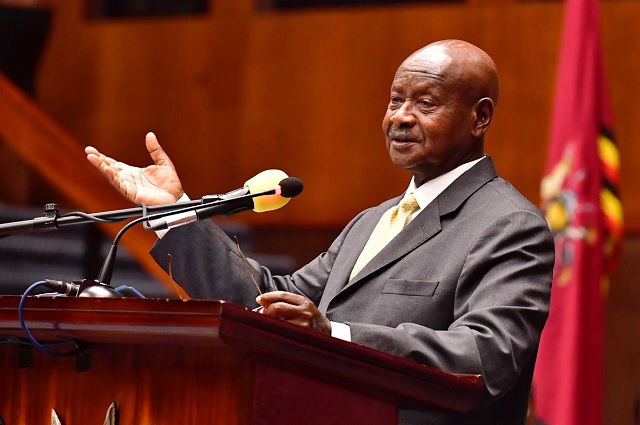
Kampala, Uganda | THE INDEPENDENT | President Yoweri Museveni has declined to assent to the Minimum Wages Bill. The Bill was in February passed by parliament.
The Minimum Wages Bill, 2018 sought to empower the Minister of Gender, Labour and Social Development to appoint a Minimum wages Board to fix all minimum wages for various sectors. The Bill also mandated the Minister to announce the minimum wages annually.
According to his letter dated 21st August 2019 addressed to Speaker of Parliament Rebecca Kadaga, the President rejected the bill and accordingly returned it.
Kadaga communicated the President’s decision on Tuesday during the plenary session saying that the President had written to her indicating his decision not to sign the Bill following advice from the Attorney General William Byaruhanga.
President Museveni says that there are no gaps in the Minimum Wages Advisory Board and the Wages Council Act that the Bill seeks to cure. He argues that the current law is adequate and enforceable.
He further says that Cabinet still awaits a report from the Ministry of Gender on the implications of fixing a minimum wage to investment and the economy to enable them make an informed decision.
Kadaga said that parliament was to take a decision on the President’s letter and the Bill at a letter stage since it had been rejected.
Arua Municipality MP Kassiano Wadri expressed displeasure with the President’s letter which refers to advice given by the Attorney General.
He wondered why the Attorney General had not given his opinion to parliament before the Bill could be passed an argument that received the support of the Speaker.
The International Labour Organisation (ILO) defines a minimum wage as the minimum sum of money payable to a worker for work performed or services rendered within a given period to cover the minimum needs of the worker, his or her family, in light of national economic and social conditions.
The Bill was presented to parliament by a private member Arinaitwe Rwakajara, the Workers MP and considered by Parliament’s Gender Committee. Rwakajara was recently quoted saying that his Bill was not necessarily mean higher salaries for workers but rather creation of harmony between employers and employees.
****
URN
 The Independent Uganda: You get the Truth we Pay the Price
The Independent Uganda: You get the Truth we Pay the Price



It’s not good for the president to refuse to sign on the bill it’s like the mines of investors only but not knowing what this investors are doing to his fellow subjects in terms of payment after the work some have to an investor personally to any company of this investors